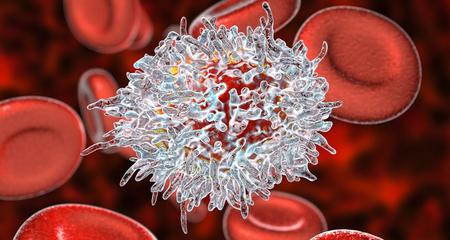Aplastic anemia and other marrow failure disorders are a group of conditions in which bone marrow does not produce enough blood cells. Bone marrow failure disorders are not cancers, but they are treated by physicians who specialize in malignant hematology.
Marrow failure disorders are extremely rare. Fewer than 1,000 people are diagnosed with aplastic anemia in the U.S. every year. A small percentage of marrow failure disorders are inherited. Most cases of aplastic anemia are not genetic, but result from an autoimmune disorder in which a patient’s immune system attacks his or her own bone marrow.
Symptoms of Aplastic Anemia
Symptoms of aplastic anemia include many typical indications of low red blood cell counts, including fatigue, shortness of breath, dizziness and other physical problems. Low white cells can lead to frequent and recurrent infections. Low platelet counts can result in easy bruising or bleeding. Some people with aplastic anemia show no symptoms at all.
Aplastic Anemia Treatment
Patients with mild aplastic anemia that is not worsening may not need treatment. For patients with more severe aplastic anemia, there are two different treatment approaches. The right approach depends on the patient’s age, health and other factors.
- Stem cell transplant for aplastic anemia. Patients younger than 40 who are in good health can often be treated with a stem cell transplant. This therapy is successful in up to 90 percent of patients.
- Immunosuppression for aplastic anemia. Patients who are not eligible for stem cell transplant or who cannot find a suitable donor can be treated with drugs to suppress the autoimmune reaction that is damaging their bone marrow. Standard immunosuppressive treatment consists of antithymocyte globulin (ATG), cyclosporine and steroids. Approximately 60 percent of patients respond to this treatment, often achieving long-term control of their disease.
Virtual Visits Are Available
Safe and convenient virtual visits by video let you get the care you need via a mobile device, tablet or computer wherever you are. We’ll gather your medical records for you and get our experts’ input so we can offer treatment options without an in-person visit. To schedule a virtual visit, call 1-866-680-0505.
More to Explore





